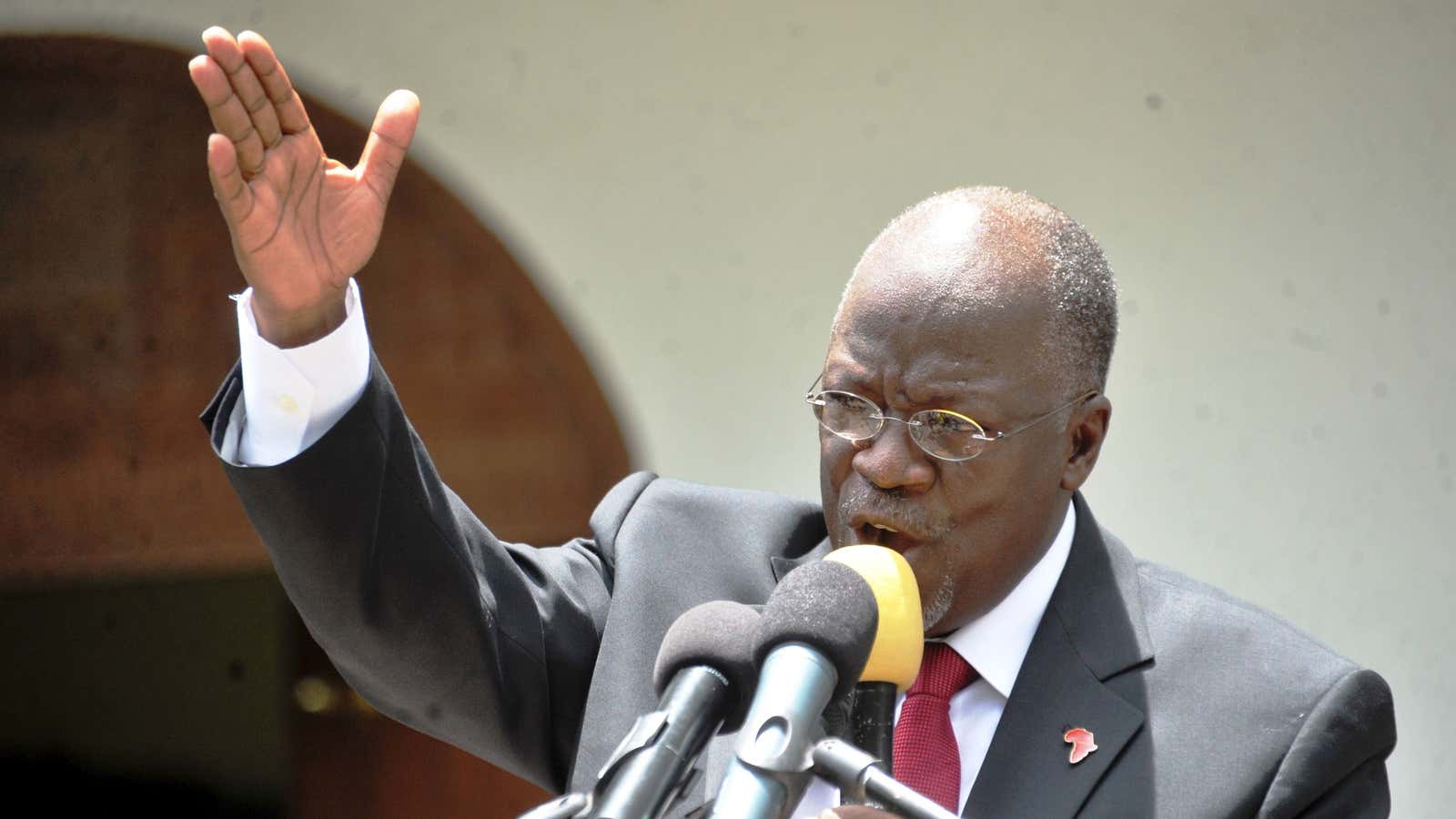One of Tanzania’s top homegrown online platforms has temporarily shut down days before the implementation of sweeping regulations that would give officials unfettered powers to police the web.
Jamii Forums announced it was forced to comply with a government notice that it apply for an online license or cease operation ahead of the June 15 deadline. As part of the new restrictions, the government must certify all bloggers and charge an annual license fee of over $900. Those defying the new orders face fines starting at five million Tanzanian shillings ($2,200) or a year in prison.
Users could not create posts, comment on threads, or check inbox messages and alerts on Jamii as of this afternoon (June 11). “We are saddened that we are forced to take this sudden action, but we hope that as our users you will be patient during this period,” the management said in a statement (in Swahili).
The shuttering of the news and social networking site marks a critical juncture in president John Magufuli’s crackdown on the media since coming to power in 2015. Even though he was elected on an anti-corruption platform, his administration has closed newspapers and radio stations and arrested journalists.
Jamii Forums, which had been at odds with previous administrations since its founding in 2006, has faced the most suppression. One of its founders has appeared in court more than 50 times last year. The site has grown to be an influential portal that breaks stories and exposes government corruption—earning it the titles of “Tanzanian Reddit” and the Swahili version of WikiLeaks. In Feb. 2008, prime minister Edward Lowassa resigned and his cabinet dissolved after Jamii published documents implicating him in a corrupt energy deal with US-based company Richmond Development.
The new laws, whose wordings and definitions are described by analysts as ambiguous, will likely be an obstacle for most bloggers and small-sized outlets in Tanzania. In early May, there was a reprieve after human-rights watchdogs, media organizations, and bloggers won a temporary court order to block the law. The ruling was quickly reversed by another court late last month, and the government ordered online content providers to register their sites and name their staff and financial backers.
The decision to close the site was received with disappointment. Angela Quintal, the Committee to Protect Journalists’ Africa program director, told Quartz that Jamii’s closure was “only the latest consequence of the impossibly high barriers” officials were “putting in place against the free flow of information.”
